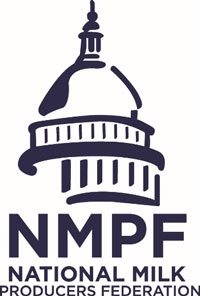
NMPF thanks Immigration Subcommittee Chair Zoe Lofgren (D-CA) and Congressman Dan Newhouse (R-WA), the lead sponsors of H.R. 5038, as well as its more than four-dozen co-sponsors drawn from each party, for their work on this legislation, which has drawn wide support from prominent groups in the agriculture, business, worker, and humanitarian communities.
“The passage of legislation that helps address dairy’s unique workforce challenges is certainly a milestone and an opportunity we must pursue to the fullest,” said Jim Mulhern, president and CEO of NMPF. “Agricultural labor reform is long overdue. With today’s action it is now imperative that the Senate act to fully address the needs of dairy farmers and all of agriculture, helping farmers do what they do best: feed our nation, and the world.”
“The urgency to reform the agricultural labor system cannot be overstated for dairy farmers,” said Mike McCloskey, dairy farmer and chair of NMPF’s Immigration Task Force. “Today, House members on a bipartisan basis showed us that they are taking our labor crisis seriously. We will use this momentum to work with the Senate to build consensus in drafting an improved bill that further addresses dairy’s workforce needs.”
More than 300 dairy, agriculture, business, and agriculture-allied organizations urged House leaders in mid-November to bring the bill to the floor for a full House vote, while more than 80 immigration and labor advocacy organizations called on their representatives to support the measure. The bill’s diverse backing ranged from the Coalition for Humane Immigrant Rights and the United Farm Workers to:
- The New York Farm Bureau, whose President, David Fisher said the bill “goes a long way towards addressing the workforce shortage that limits farmers’ ability to plant, harvest, and care for livestock.” The legislation “would take a significant step to ensure that New York agriculture is positioned to have a sustainable and reliable workforce that will support our rural economy.”
- The Cato Institute, whose analysis estimated the bill “would have saved H-2A farmers in 2019 about $324 million in labor expenses for H-2A workers alone.” The bill would “substantially reduce the illegal market for labor and increase agricultural production, without harming U.S. workers,” the organization said.
- And the U.S. Chamber of Commerce, which stated the bill “would take important steps to address the growing struggle of agricultural employers to meet their workforce needs.”
The National Milk Producers Federation, based in Arlington, VA, develops and carries out policies that advance dairy producers and the cooperatives they own. NMPF’s member cooperatives produce more than two-thirds of U.S. milk, making NMPF dairy’s voice on Capitol Hill and with government agencies. For more, visit www.nmpf.org.


